
The Eurovision Young Musicians, often shortened to EYM, or Young Musicians, is a biennial classical music competition for European musicians that are aged between 12 and 21. It is organised by the European Broadcasting Union (EBU) and broadcast on television throughout Europe, with some countries holding national selections to choose their representatives for the contest.
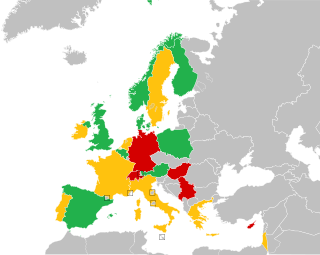
The Eurovision Young Musicians 1992 was the sixth edition of the Eurovision Young Musicians, held at Cirque Royal in Brussels, Belgium on 9 June 1992. Organised by the European Broadcasting Union (EBU) and host broadcaster Radio Télévision Belge Francophone (RTBF), musicians from eight countries participated in the televised final. At least fourteen countries took part in the competition. All participants performed a classical piece of their choice accompanied by the Belgian National Orchestra, conducted by Ronald Zollman. Hungary and Poland made their début, while Greece, previous winners Netherlands, Ireland, Italy, Portugal and Sweden decided not to participate.
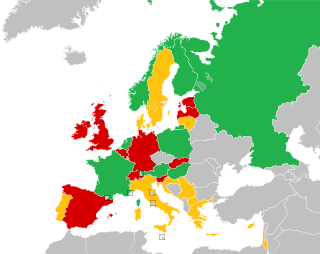
The Eurovision Young Musicians 2000 was the tenth edition of the Eurovision Young Musicians, held at Grieg Hall in Bergen, Norway on 15 June 2000. Organised by the European Broadcasting Union (EBU) and host broadcaster Norsk rikskringkasting (NRK), musicians from eight countries participated in the televised final. A total of eighteen countries took part in the competition. All participants performed a classical piece of their choice accompanied by the Bergen Philharmonic Orchestra, conducted by Simone Young. Seven countries returned to the contest, while Croatia, Cyprus and Sweden withdrew from the 2000 contest.

The Eurovision Young Musicians 1996 was the eighth edition of the Eurovision Young Musicians, held at Centro Cultural de Belém in Lisbon, Portugal on 12 June 1996. Organised by the European Broadcasting Union (EBU) and host broadcaster Rádio e Televisão de Portugal (RTP), musicians from eight countries participated in the televised final. Out of the 22 countries, 14 did not qualify to the final, including the host country Portugal. All participants performed a classical piece of their choice accompanied by the Portuguese Symphony Orchestra, conducted by Luis Izquierdo. Seven countries withdrew from the 1996 contest; they were Croatia, Denmark, Hungary, Lithuania, Macedonia, Russia and Sweden.
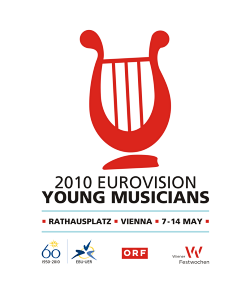
The Eurovision Young Musicians 2010 was the fifteenth edition of the Eurovision Young Musicians, held at the Rathausplatz in Vienna, Austria on 14 May 2010. Organised by the European Broadcasting Union (EBU) and host broadcaster Österreichischer Rundfunk (ORF), musicians from seven countries participated in the televised final. This was the third time that the competition was held on an open-air stage and was the beginning of the annual Vienna Festival. Austria and broadcaster ORF previously hosted the contest in 1990, 1998, 2006 and 2008.
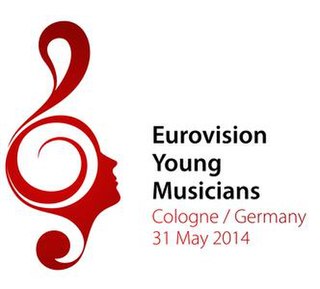
The Eurovision Young Musicians 2014 was the seventeenth edition of the Eurovision Young Musicians, held outside the Cologne Cathedral in Cologne, Germany, on 31 May 2014. Organised by the European Broadcasting Union (EBU) and host broadcaster Westdeutscher Rundfunk (WDR), musicians from fourteen countries participated in the televised final. This was the fifth time that the competition was held on an open-air stage. Germany previously hosted the contest in 2002.

Austria has participated in the biennial classical music competition Eurovision Young Musicians 18 times since its debut in 1982 and is the most successful country in the contest, with a total of five wins. Austria has hosted the contest a record six times, in 1990, 1998, 2006, 2008, 2010 and 2012.

Germany has officially participated in the biennial classical music competition Eurovision Young Musicians 14 times since its debut in 1982, winning the inaugural contest that year. Before German reunification in 1990, it was presented as West Germany, representing the Federal Republic of Germany. East Germany did not compete. Germany won again in 1996 and have hosted the contest twice, in 2002 and 2014.

Norway has participated in the biennial classical music competition Eurovision Young Musicians 17 times since its debut in 1982, winning the contest for the first time in 2012. Norway did not officially take part in 1984, the only contest the country has missed as of 2022. It hosted the contest in 2000 and will do so again in 2024.

Poland has participated in the Eurovision Young Musicians 12 times since its debut in 1992 and has won the contest three times to date. Poland hosted the contest in 1994.

Sweden has participated in the biennial classical music competition Eurovision Young Musicians 13 times since its debut in 1986, winning the contest for the first time in 2006. Sweden are yet to host the contest.

Slovenia has participated in the biennial classical music competition Eurovision Young Musicians 13 times since its debut in 1994, winning the contest for the first time in 2010.

France has participated in the biennial classical music competition Eurovision Young Musicians ten times since its debut in 1982. France won the contest in 1986, and hosted the most recent event in 2022 in Montpellier.

Portugal has participated in the biennial classical music competition Eurovision Young Musicians 4 times since its debut in 1990 and are yet to receive a top 3 placing in any contest. Portugal hosted the contest in 1996. Portugal previously attempted to take part in 1986, but were forced to withdraw as it had been unable to provide a "qualified candidate".

Malta made their Eurovision Young Musicians debut at the Eurovision Young Musicians 2014.

Spain has participated in the biennial classical music competition Eurovision Young Musicians eight times since its debut in 1988, most recently taking part in 2018, after a 16-year absence. The country's best result is a second-place finish in 1992, the only time in which they qualified for the televised final.

Belgium has participated in the biennial classical music competition Eurovision Young Musicians 11 times since its debut in 1986, most recently taking part in 2022. The country's best result is two second-place finishes, in 1990 and 1992; two of only three years in which the country has qualified for the televised final. Belgium hosted the contest in 1992.

Ukraine has participated twice in the Eurovision Young Musicians since its debut in 2008, most recently taking part in 2012. Ukraine was expected to return in 2020, however, the return did not occur.

Israel made their Eurovision Young Musicians debut at the Eurovision Young Musicians 1986, where they failed to qualify for the final.
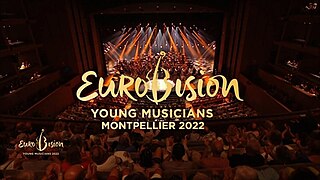
The Eurovision Young Musicians 2022 was the twentieth edition of the Eurovision Young Musicians. It took place at the Corum in Montpellier on 23 July 2022. The live show was hosted by French playwright Judith Chaine and Belgian radio presenter Vincent Delbushaye, with the Montpellier Occitanie National Opera Orchestra conducted by Pierre Dumoussaud. Organised by the European Broadcasting Union (EBU), this edition was co-hosted by French broadcasters Radio France and France Télévisions, as part of a summer series of music events called Festival Radio France Occitanie Montpellier.






















